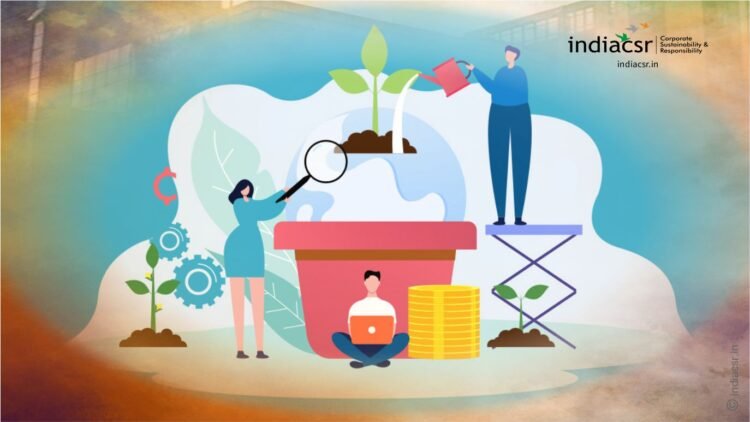As sustainability becomes an increasingly important consideration for businesses around the world, Pfizer Limited’s Goa plant has taken significant steps to minimize its environmental impact and contribute to the wellbeing of society.
In a world grappling with climate change and social inequalities, businesses are increasingly expected to shoulder the responsibility of creating products and services that are not only safe but also contribute to sustainability throughout their lifecycle. This involves not just minimizing the negative impacts but also proactively seeking opportunities to have a positive impact on both society and the environment.
A notable example of this approach is the modification of the Granulation process for Wysolone Tablets at Pfizer Limited’s Goa plant. By incorporating a higher capacity blender with features for online sifting and transfer of powder under vacuum, they managed to increase the batch size by 2.5 times. This initiative minimized manual intervention, reduced sifting and blender charging time, maintained a contained and dust-free environment, and reduced the use of testing chemicals. These changes resulted in an annual projected savings of approximately Rs. 50 lakhs.
Here are 7 sustainable initiatives the plant has implemented to achieve its sustainability goals.
Resource Use Per Product Unit
Analyzing the resource use per unit of product is critical in identifying opportunities for further improvements in sustainability. When examining the consumption for all products in 2021-22, the company finds an average raw material usage of 125.68 mg per unit, 1545.5 KWH energy consumption per million tablets, and 6.68 liters of water used per million tablets. Compared to the previous year, this represents a significant reduction in resource consumption.
Reduction in Energy Consumption
The year 2021-22 saw a 2.8% increase in the consumption of Electrical Energy (both purchased and generated through a Diesel Generator) compared to the previous year. Despite this, the plant managed to produce 9% more volumes, reducing the net energy required to produce per million tablets by 2%. This achievement was made possible by the plant’s continued focus on green energy, as demonstrated by the completion of Phase-III & Phase-IV of their Solar project. The site’s solar power generation increased by 2.7 times, generating a total of 345 MWH of electrical energy for manufacturing activities.
Reduction in Consumer Usage
The Goa plant has also managed to achieve significant reductions in energy and water usage by consumers. Electrical Energy and Water consumption per million tablets produced were reduced by 2% and 5% respectively. This was due in part to the plant’s continued investment in solar power generation capacity and its ongoing commitment to green energy projects.
Clean Development Mechanism
As part of its commitment to sustainability, the Goa plant has developed a 5-year plan for the installation of Solar Photo Voltaic panels. By March 2022, the plant had installed 362 KWP Solar panels and a 5 KWP Wind turbine. The solar power generation capacity of the site has increased by 2.7 times during the period under review, with a total of 345 MWH of electrical energy being generated for manufacturing activities.
Other Initiatives In addition to the above, the Goa plant has embarked on a 5-year capital plan to replace key old machines used in core manufacturing with new energy-efficient ones. The plant has also completed four phases of its Green Energy project, installing a total of 362 KWP solar panels at the site. These initiatives represent the plant’s commitment to clean technology, energy efficiency, and renewable energy.
Waste Management and Reduction
The successful implementation of sustainability practices extends beyond the use of resources and energy. It also involves a dedicated effort to manage and reduce waste effectively. In this regard, the Goa plant has made significant strides by incorporating efficient waste management practices into its operations.
Specifically, the plant has implemented a zero-waste policy, aiming to reduce, reuse, and recycle as much waste as possible. This not only reduces the plant’s environmental footprint but also leads to cost savings and greater operational efficiency.
Employee Engagement and Training
An important aspect of sustainability is the involvement of employees in the company’s sustainability efforts. At the Goa plant, sustainability is ingrained in the company culture, and employees are encouraged and trained to think and act in a sustainable manner.
This includes training programs that educate employees about sustainable practices and their benefits, as well as opportunities for employees to contribute their own ideas for improving sustainability. This not only helps the plant achieve its sustainability goals but also creates a work environment where employees feel valued and engaged.
Community Involvement and Social Responsibility
As a business, Pfizer Limited’s Goa plant also recognizes its social responsibility to the community it operates in. The plant has undertaken several initiatives to give back to the community and contribute to its wellbeing. These include local infrastructure development projects, educational programs, and health initiatives, all aimed at improving the quality of life for community members.
Moreover, the plant is committed to fair and ethical business practices, ensuring that its operations do not harm the community or the environment. This includes responsible sourcing practices, fair labor practices, and maintaining transparency in its operations.
Looking Ahead
Future Sustainability Plans Moving forward, the Goa plant remains committed to further improving its sustainability practices. Plans are in place to increase energy efficiency, reduce water consumption, and cut down on waste. The plant is also exploring more ways to harness renewable energy and further reduce its carbon footprint.







